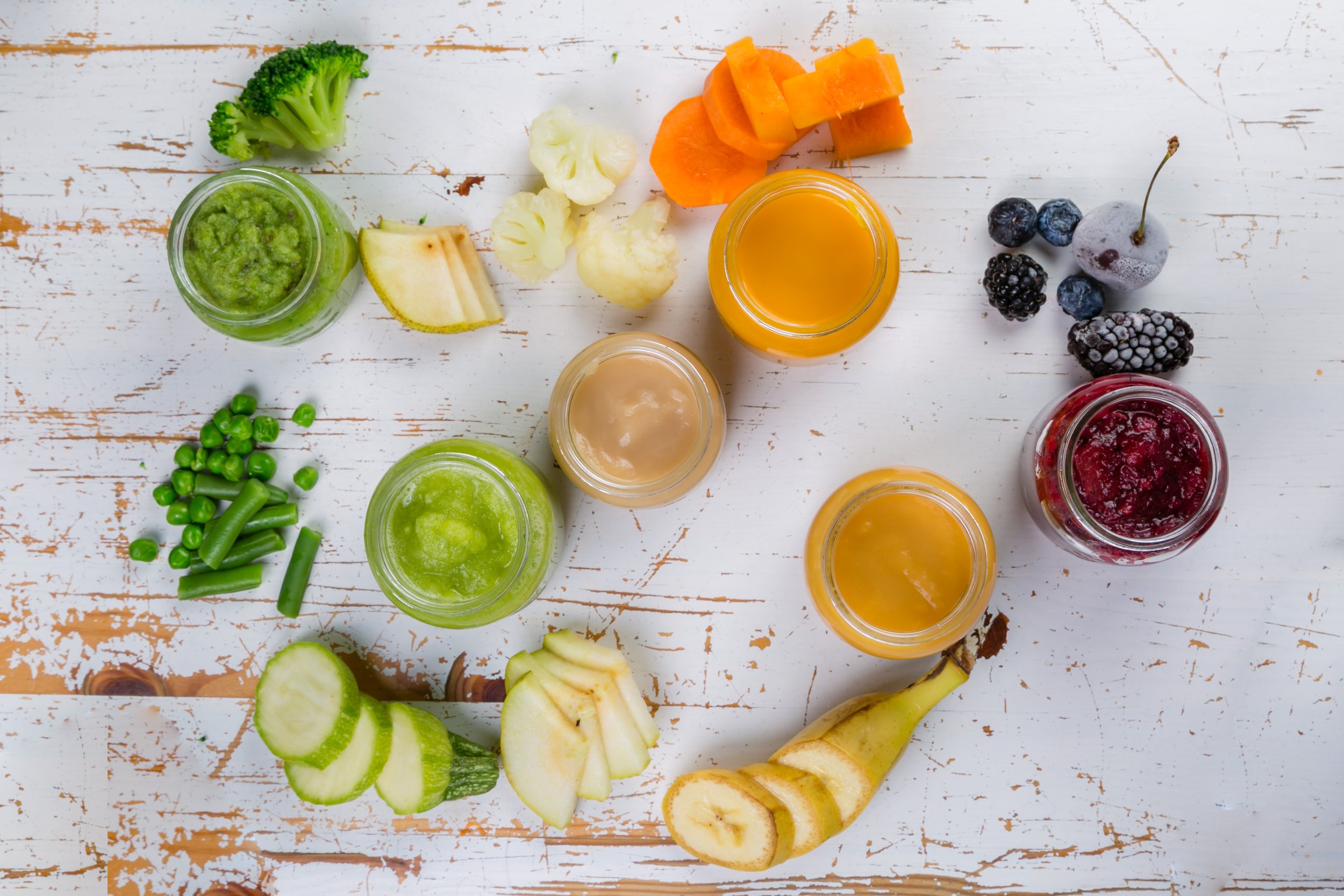Why Your Baby’s Gut Health Matters — And When to Choose Organic
Your baby’s gut is the powerhouse that fuels their every movement as it processes their milk and first taste of solid foods and converts it into energy.
Their little gut already contains trillions of microorganisms – such as bacteria, fungi, and viruses – which play a vital role in building and maintaining a healthy immune system. These microorganisms play a pivotal role in your baby’s digestion, nutrient consumption, and overall growth and development. Their gut bacteria is called microbiota, and babies’ and children’s microbiota differ from adults.
From their very first taste of solid foods we are influencing their microbiota
When a baby is introduced to a wholefood diet filled with foods that nourish the good bacteria, the good bacteria can flourish and help prevent bad bacteria from growing. This can lower their risk of many recurrent childhood illnesses, including tummy bugs and upper respiratory infections. That’s why it’s crucial to build up their good bacteria from an early age, as developing good bacteria from a young age has been shown to help regulate the immune system.
The Science Behind It:
For the first four to six months of our lives, we have spaces between our intestinal cells that give direct access to the bloodstream. The good bacteria will fill these gaps and stabilise the intestinal barrier, making it harder for bad bacteria to slip through.
An imbalance in gut microbiota (also referred to as dysbiosis) during these first months can have a negative impact on a baby’s health and well-being and has been linked to an increase in asthma and allergy, as well as colic and general gastrointestinal disorders.
There is emerging evidence indicating that dysbiosis may also increase the risk of obesity and metabolic disorders later in life.
Why Organic Matters for Gut Health
Your baby’s developing gut is particularly vulnerable to pesticides, preservatives, and other synthetic chemicals commonly found in non-organic foods. While going 100% organic isn’t always practical, choosing organic where it counts most can reduce your baby’s exposure to harmful substances during this critical window of development
Choose Organic for These Key Foods:
Fruit & Vegetables
Especially those on the Dirty Dozen list (e.g. apples, spinach, strawberries, capsicum), which are often sprayed with multiple pesticide residues. These chemicals can disrupt gut bacteria and the development of the immune system.Animal Products
Always prioritise organic or grass-fed meat, chicken, and eggs where possible. Non-organic animal products may contain antibiotic residues and hormones that could negatively impact the gut microbiome.Dairy Products
Opt for organic yoghurt and kefir for babies from 8+ months. These are not only probiotic-rich but also free from growth hormones and synthetic additives that can interfere with gut health.Grains and Cereals
Choose whole organic grains such as oats, quinoa, brown rice, and spelt. Non-organic grains may be contaminated with glyphosate (a common herbicide), which has been shown to disrupt microbial balance.Baby Snacks and Pouches
Many commercial snacks contain hidden sugars, emulsifiers, or preservatives. Choose organic baby foods with minimal ingredients or make your own using whole ingredients whenever possible.
5 Everyday Tips to Support Your Baby’s Gut Health
Eat a wholefood and varied diet during pregnancy.
Your baby’s microbiota begins with yours — so nourish yourself with plants, fibres, and fermented foods.If possible, consider a natural birth.
Vaginal delivery exposes your baby to your beneficial bacteria. But if a C-section is necessary, don’t worry — there are other ways to support gut health post-birth.Continue a wholefood diet during breastfeeding.
Breast milk contains prebiotics and beneficial bacteria to support your baby’s gut and immunity.Introduce solids between 4 and 6 months with a focus on real food.
Start with vegetables, fruits, healthy fats, and build up to quality protein, wholegrains, and fermented dairy by 8+ months.Avoid sugary foods, additives, and overly processed commercial baby foods.
These can disrupt your baby’s gut microbiome and increase the risk of fussy eating, digestive discomfort, and immune imbalances.


